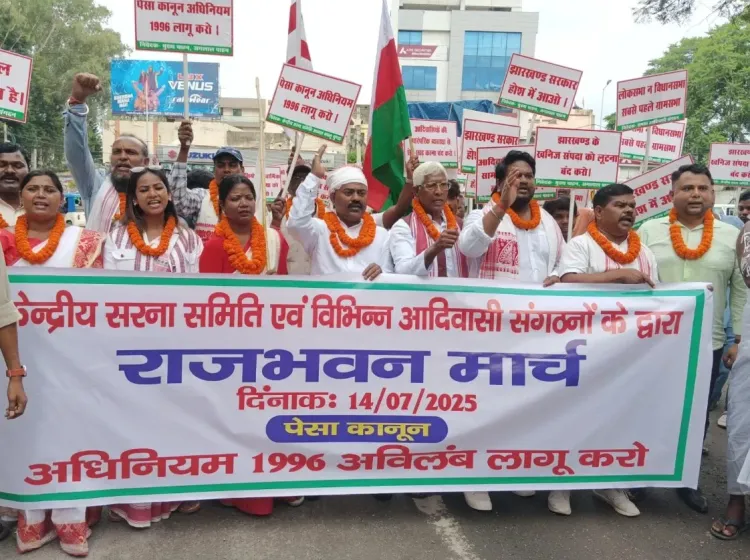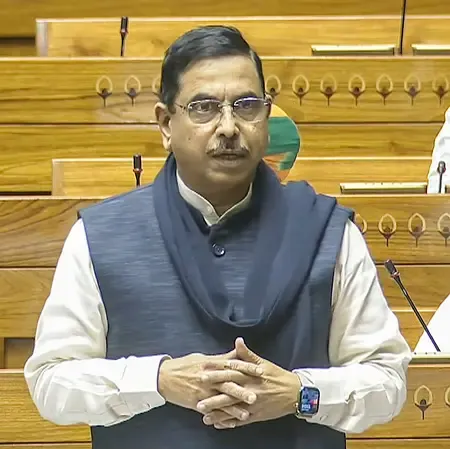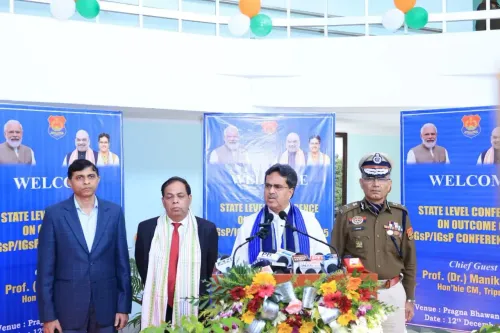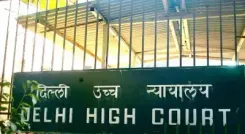Why Are Tribal Organisations Marching to Raj Bhavan for PESA Act Implementation in Jharkhand?

Synopsis
Key Takeaways
- Tribal Organizations: Marching for rights.
- PESA Act: Key legislation for tribal protections.
- Government Inaction: Frustration among tribal communities.
- Urgent Demand: Immediate implementation is crucial.
- Escalating Protests: Warning of drastic measures if ignored.
Ranchi, July 14 (NationPress) Numerous tribal organizations made their way to the Raj Bhavan in Ranchi on Monday, insisting on the urgent enforcement of the Panchayat (Extension to Scheduled Areas) Act, widely referred to as the PESA Act, in Jharkhand.
Protestors, which included members from the Central Sarna Committee and various tribal factions, journeyed nearly 120 km from Gumla to Ranchi to express their grievances.
After demonstrating outside the Raj Bhavan, they presented a memorandum to the Governor.
Addressing the protest, Bablu Munda, president of the Central Sarna Committee, voiced frustration regarding the state government's inaction.
“Even with a tribal Chief Minister, the government has persistently sidelined the demands of the tribal populace. In fact, the exploitation and encroachment of tribal lands, forests, and water resources have escalated during this administration,” he claimed.
“Our demand is straightforward -- the Governor must guarantee the implementation of the PESA Act to protect the culture, religion, and constitutional rights of tribal communities,” Munda emphasized.
Social activist Nisha Bhagat, who also participated in the demonstration, highlighted that Jharkhand, being a Fifth Schedule state, is constitutionally mandated to implement the PESA Act.
“The Act was enacted by Parliament in 1996. Even after over 25 years, it remains unimplemented in Jharkhand. Due to religious conversions and systemic disregard, tribal communities are being stripped of their rightful protections,” she stated.
Warning of severe measures, she added: “If the government does not respond, tribal society may be compelled to take drastic actions, including self-immolation.”
Leader of the Opposition Babulal Marandi also condemned the state government, alleging it is intentionally hindering the law's implementation for political gain.
“If PESA is enacted, Gram Sabhas will gain authority -- they’ll determine land ownership, which will hinder illegal land grabs and infiltration, particularly from Bangladesh. The ruling party fears this will impact their voter base, which is why they’re stalling its implementation,” Marandi asserted.
Tribal organizations have cautioned that if their requests are not addressed, they will escalate their agitation and initiate a statewide movement.










